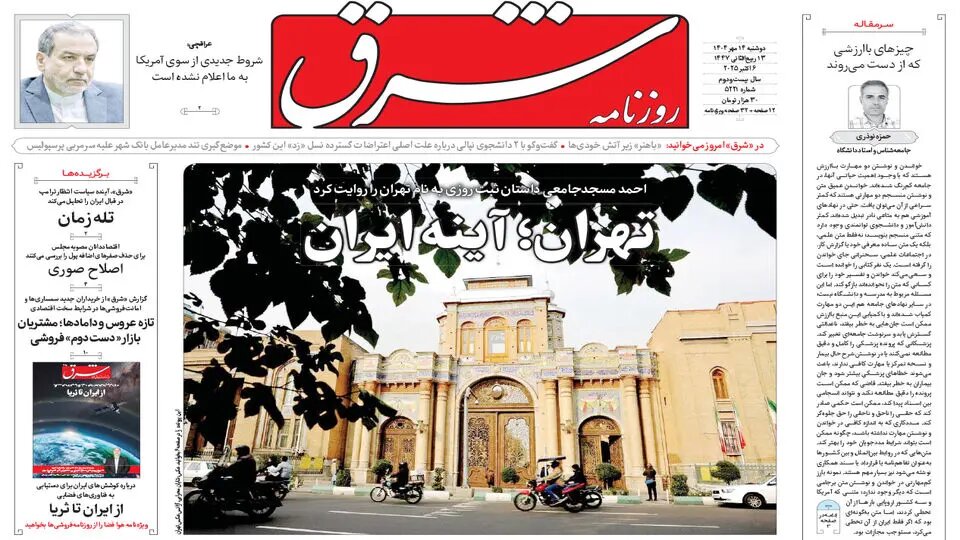The complex puzzle of Iran's exit from the FATF black list

TEHRAN - In an analysis, Shargh discussed how Iran would exit the FATF black list.
It said: To exit the FATF black list, Iran must go through a multi-stage process. First, it must make extensive structural reforms in its domestic laws and regulations to align with FATF standards. After that, FATF's periodic reports on the country's progress will be reviewed and, if approved, Iran will be transferred to the gray list. At the same time, FATF inspection teams will be dispatched to the country, and field assessments will be conducted. Ultimately, by continuing to fully implement its commitments, Iran can exit the gray list and return to normal. This is a difficult path that requires strong political will, deep reforms, and comprehensive domestic and international cooperation. To achieve this goal, we must wait for FATF assessments and political and economic reactions at the global level. However, any progress in this area can draw a new prospect for Iran's economy and its international standing.
Iran: America not serious about negotiations
The Iran newspaper spoke with Hossein Gharibi, an expert on international affairs, about the process of Iran-U.S. negotiations. He said: In a situation where Iran's foreign policy is under the shadow of rapid nuclear developments and the consequences of the activation of the snapback sanctions, Tehran is trying to put strategic patience on the agenda. Tehran is redefining its position in new global equations. On the other hand, the Trump administration has adopted a policy of silence towards Tehran, which is still unclear as a result of the erosion of American diplomacy in the simultaneous crises in Ukraine, Gaza, and East Asia, or as part of a tactic to test Iran's response. It is necessary to prioritize resolving issues related to sanctions and to be in contact with all actors who have the capacity to play a role in this field to the maximum extent possible. The scope of interaction and diplomacy should not be limited, and all capacities should be used appropriately. Each additional step taken increases the likelihood of achieving the intended goals.
Ham Mihan: Iran's role in the future equations of Palestine
In an interview with Ham Mihan, Sabah Zangeneh, an expert on regional issues, analyzed Hamas's reaction to Trump's peace plan to end the Israeli war on Gaza. He said: The end of the Gaza war will mark a new chapter in the equations of the region. These initial steps can be considered positive, and it was hoped that the war would finally end. But immediately, the Yemenis announced that they would continue to be defenders and supporters of Palestine and the Palestinian cause. This means that if Palestine encounters problems in the future, it can hope for the reaction and response of the Houthis. This shows that part of the regional atmosphere is changing. Now we must observe the reaction of Iran, other countries in the region, and other Palestinian groups. Also, neighboring countries, including Lebanon, Syria, Iraq, Egypt, Jordan, and even Saudi Arabia, must be taken into account. Iran must weigh all these dimensions and not make itself a target of Netanyahu and Trump. Just as Hamas acted carefully and vigilantly, Iran must also prepare a precise response with vigilance while preserving its principles of values.
Khorasan: Snapback is activated but still no policy how to counter it
In an article, Khorasan addressed the lack of an appropriate policy by the Iranian government on how to confront the activation of snapback sanctions. It wrote: A week has passed since snapback was activated. A mechanism whose psychological effect on the Iranian market and economy has so far exceeded its actual size. However, what is felt and understood so far from the country's policymaking bodies is a response that is not very proportionate to this economic attack, that the main root of which is not in the American Department of War, but in the Department of Treasury. The experience of past years has shown that sanctions not only put pressure on the economy, but also test decision-making and policy-making. Countries that have been able to overcome sanctions usually have clarified their alternative path in the very first weeks. In Iran, however, a clear plan is still not visible. If the government wants to contain the psychological pressure of the snapback, it must speak to the people and the market very quickly and unambiguously, not with slogans, but with a real, transparent program based on structural reform. Today's market, more than ever, needs a sign of cohesion and courageous decision-making.
